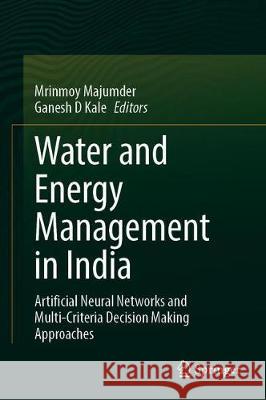Water and Energy Management in India: Artificial Neural Networks and Multi-Criteria Decision Making Approaches » książka
topmenu
Water and Energy Management in India: Artificial Neural Networks and Multi-Criteria Decision Making Approaches
ISBN-13: 9783030666828 / Angielski / Twarda / 2021 / 275 str.
Water and Energy Management in India: Artificial Neural Networks and Multi-Criteria Decision Making Approaches
ISBN-13: 9783030666828 / Angielski / Twarda / 2021 / 275 str.
cena 523,30
(netto: 498,38 VAT: 5%)
Najniższa cena z 30 dni: 501,19
(netto: 498,38 VAT: 5%)
Najniższa cena z 30 dni: 501,19
Termin realizacji zamówienia:
ok. 22 dni roboczych.
ok. 22 dni roboczych.
Darmowa dostawa!
Kategorie:
Kategorie BISAC:
Wydawca:
Springer
Język:
Angielski
ISBN-13:
9783030666828
Rok wydania:
2021
Wydanie:
2021
Ilość stron:
275
Waga:
0.60 kg
Wymiary:
23.39 x 15.6 x 1.75
Oprawa:
Twarda
Wolumenów:
01
Dodatkowe informacje:
Wydanie ilustrowane











